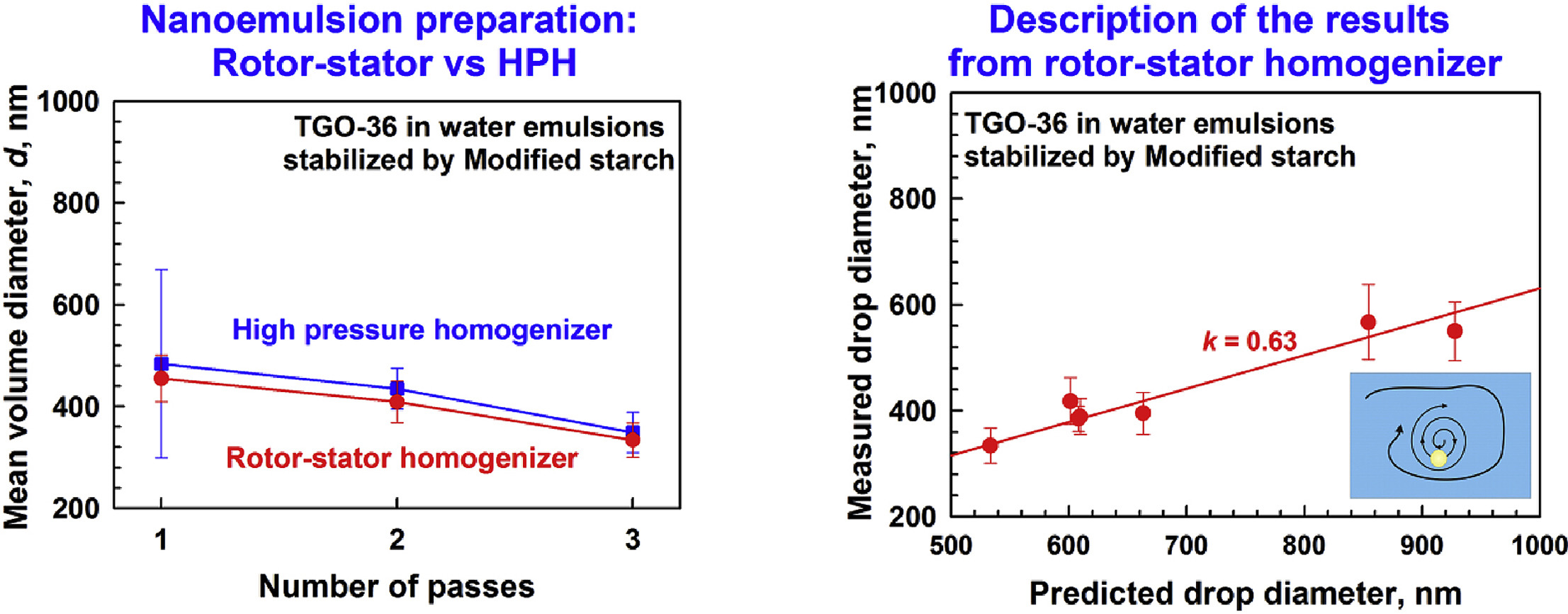Food grade nanoemulsions preparation by rotor-stator homogenization

High-pressure homogenizers, typically used for producing nanoemulsions at the industrial scale, are energy and maintenance intensive, and limited to produce only dilute, low viscosity nanoemulsions. We propose an alternative approach to produce dilute to concentrated food-grade nanoemulsions with droplet size ranging between 100 and 500 nm using rotor-stator homogenization. Gum Arabic (GA) or modified starch (MS) was used as both viscosity modifier and emulsion stabilizer. GA and MS have relatively low surface activity compared to the common low-molecular-mass surfactants used typically for nanoemulsion preparation. The main differences between GA and MS are the lower viscosity of the GA solutions, compared to MS solutions, and the faster adsorption of MS, as compared to GA. The obtained results show that stable nanoemulsions are formed by rotor-stator homogenization when the rapidly adsorbing MS is used as emulsifier. Much larger drops are formed during emulsification with GA, which is due to significant drop-drop coalescence in the respective emulsions. The experimental results for the nanoemulsions prepared with MS are well-described by the theoretical expression for emulsification in turbulent viscous regime, after proper account for the effects of temperature and drop-drop interactions in the sheared emulsions.

